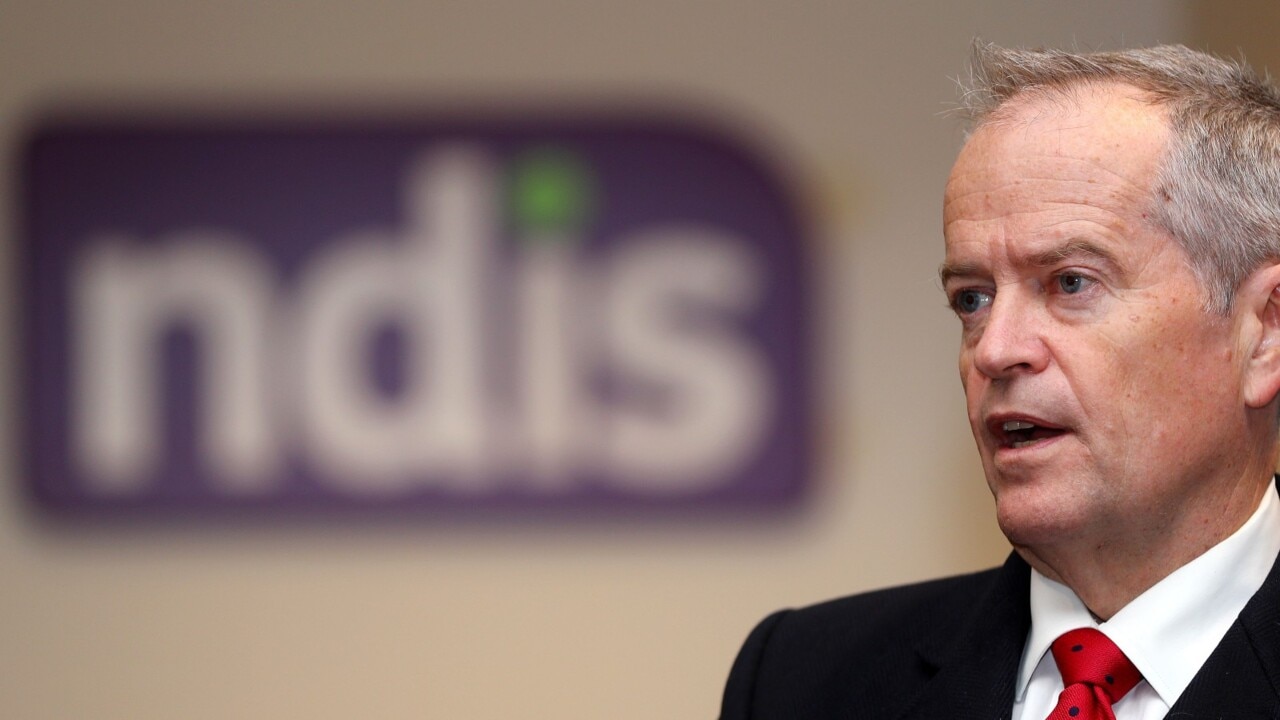NDIS changes must be quick to bring costs down: expert
Amid a federal-state costs squabble, a disability expert says NDIS reforms will have to be introduced quickly to bring down the steep trajectory of scheme expense.

Hitting national cabinet’s 8 per cent NDIS cost growth target by 2026 will require immediate and far-reaching changes to both assessment for the scheme and what is covered by “reasonable and necessary” support, a leading disability expert warns.
And addressing fraud and waste in the $42bn National Disability Insurance Scheme will “barely touch the sides” of finding the required savings in the system, Grattan Institute disability program director Sam Bennett said.
Amid a fractious state-federal negotiation on new disability funding arrangements ahead of Wednesday’s national cabinet, and ahead of the public release of a much-anticipated review of the NDIS, Dr Bennett said reining in scheme costs is becoming harder with plan inflation running at more than 15 per cent.
“The kinds of changes that need to come out of the NDIS review if the 8 per cent growth target for 2026 is to be remotely plausible need to be far-reaching and pretty much oven-ready,” Dr Bennett told The Australian.
“The target has become an even bigger stretch of late with a further $2.9bn added to last December’s cost projections and plan inflation currently running at over 15 per cent.

“The relatively low-hanging fruit of addressing fraud and waste in the system will barely touch the sides of what is needed. (For instance) the 17 cases the NDIA currently has before the courts constitute a total alleged fraud value of $16.1 million. This is important work, but has little material impact on the bottom line.”
The 1300-page independent NDIS review, delivered to federal and state governments in late October, will be unveiled publicly on Thursday. It is set to recommend more support be provided to people with disability outside the NDIS in mainstream settings, such as state-funded schools navigating increasing numbers of students with milder levels of autism, leaving the scheme to support higher-needs participants.
Of the scheme’s 630,000 participants around 270,000 are children, most with a primary diagnosis of autism. Early intervention support to be delivered outside the scheme is expected to be key among the review’s recommendations.
The review was set in train last December by NDIS Minister Bill Shorten, but became more critical after national cabinet in April announced costs, growing at 14 per cent annually and projected to reach almost $100bn by 2031, would have a new growth target of 8 per cent by 2026.
The federal government is responsible for a growing proportion of NDIS costs under the original agreement with the states. By 2032 it has been forecast to be paying 80 per cent, or $80bn, if the growth trajectory continued.
But in negotiations over how to fund future disability support outside the NDIS, the states are playing hardball, tying it to a new GST revenue deal that would see them receive an extra $5bn a year.

NSW Premier Chris Minns has cast doubt over whether a deal would be struck this week, saying the states would not agree to providing more disability services without receiving more financial support from the commonwealth.
Treasurer Jim Chalmers said on Monday the federal budget was under pressure just like state budgets and while he would like a GST deal done, he conceded it may not be.
Dr Bennett said early indications about the NDIS review, undertaken by disability advocate Bruce Bonyhady and former senior bureaucrat Lisa Paul, suggested it had “landed on the right reform directions, including the major overhaul of assessment and planning processes needed and the establishment of a foundational level of disability supports outside the scheme”. But the complexity of what is needed makes the cost turnaround by 2026 “really tough”, he said.
“A lot more work will be needed to even get to the reform starting line, much of which will necessarily be subject to negotiation with states and territories and the expectation of further co-design with the disability community,” Dr Bennett said.
“This is the right thing to do, but it is complex work that will not yield results quickly … these reforms will unquestionably require legislative change to enact, adding another level of complexity and potential delay.”
Mr Shorten has consistently said the scheme should be servicing Australians with the most profound disabilities, but any changes would be future-focused and made “with people, not to people”.







To join the conversation, please log in. Don't have an account? Register
Join the conversation, you are commenting as Logout